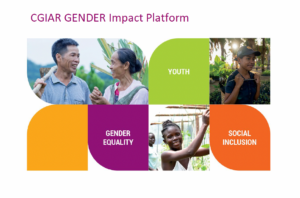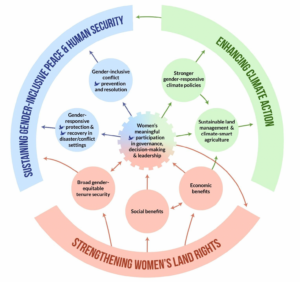In order to obtain an enriched understanding of the framing of gender issues in climate change related policies in Uganda and to explore its impacts on climate change adaptation at grassroots, the International Institute of Tropical Agriculture (IITA) and the International Center for Tropical Agriculture (CIAT) analyzed the influence of current policy and institutional frameworks on gender and climate issues. The study evaluated the institutional and political context under which policies related to climate change are developed and implemented in Uganda as well as examined the gender approaches employed at different administrative levels of the government.
Key messages
- Gender and climate change issues are generally treated as cross-cutting issues, not given priority or a clear allocated budget in many of the reviewed policies. Gender mainstreaming in most of the reviewed policies is an addendum rather than an integral aspect of the respective policies. While the mainstreaming of gender in all climate change activities and programs can certainly prove beneficial, this should be done with both a comprehensive implementation plan across sectors and a clear budget allocation.
- The way in which gender issues are approached in agriculture-related policies and strategies in Uganda is diverse and not homogenized. There is need for stronger cross-sectoral coordination and accountability since gender mandates for respective interventions fall under different ministries and agencies.
- Climate change related policies have been mostly designed to address practical gender needs thus do not address the structural constraints that hinder women´s access to resources. If policies are to tackle the root cause of gender inequalities, greater attention should be paid to gender structural constraints.




